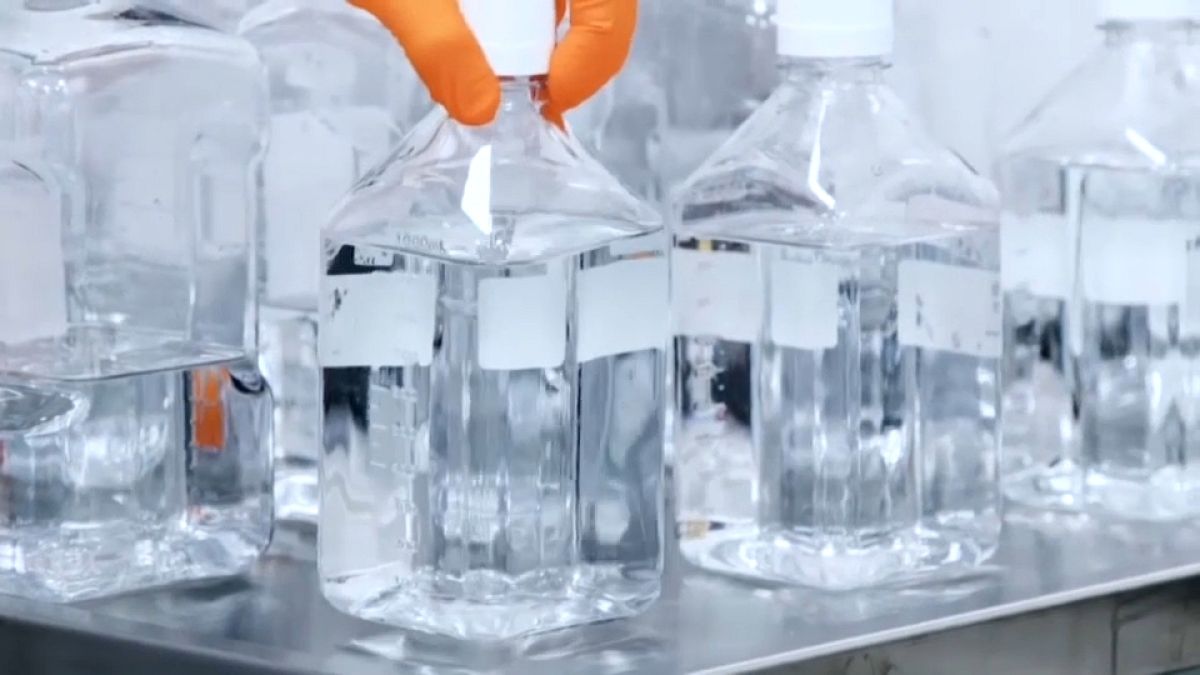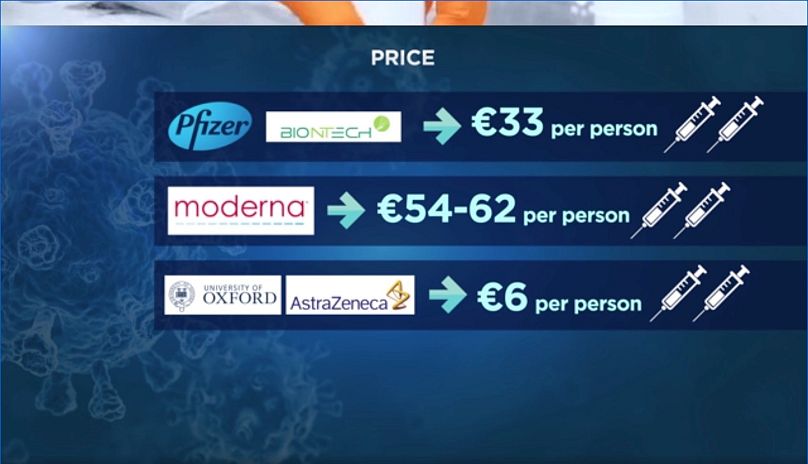Here we compare the coronavirus vaccines from Pfizer/BioNtech, Moderna and Oxford/AstraZeneca.
Three COVID-19 vaccines - from Pfizer/BioNtech, Moderna and Oxford/AstraZeneca - look set to be the most common ones for Europeans.
While they all have the same goal, there are substantial differences between the jabs, from their composition and reported effectiveness, to their price and ease of conservation and distribution.
Pfizer/BioNtech and Moderna
The Pfizer vaccine, like the Moderna one, use innovative messenger RNA technology. In short, this technology teaches our cells how to produce a protein, which is what makes the immune system react.
It is claimed their efficiency in successfully fighting COVID-19, at up to 95%, is higher than that of AstraZeneca.
Both, however, are more expensive.
The big drawback of Pfizer's jab is that it needs to be stored in the extreme cold, at temperatures as low as -70C to -80C. Moderna's can remain stable for 30 days at a temperature of between 2C and 8C, but for longer periods it will have to be frozen at -20C.
Oxford/AstraZeneca
Compared to Pfizer and Moderna, AstraZeneca's jab uses a more traditional vaccine technique, using an attenuated version of the virus that causes the common cold in chimpanzees.
This virus has been genetically altered with a gene for a coronavirus protein to provoke the body's immune reaction.
Its efficiency rate is lower at around 70%. But, under certain conditions, this can be as high as 90%.
But it is a lot cheaper and easier to store than Pfizer's vaccine. The AstraZeneca vaccine can survive in a standard refrigerator for up to six months, whereas the Pfizer one needs temperatures of up to -80℃.
Are other vaccines on their way?
The European Union has already purchased tens of millions of these three vaccines. But they are not the only candidates - others are being developed by Johnson & Johnson and Sanofi. There are also Chinese and Russian-developed jabs.
Watch the full comparison in the video player, above.


